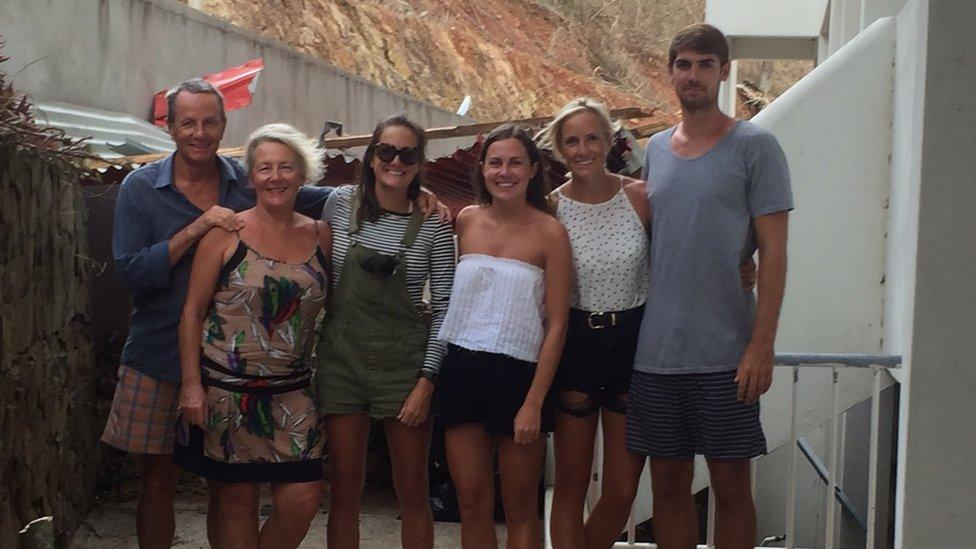Hurricane Irma: Prisoners still on the run after 100 escape
- Published
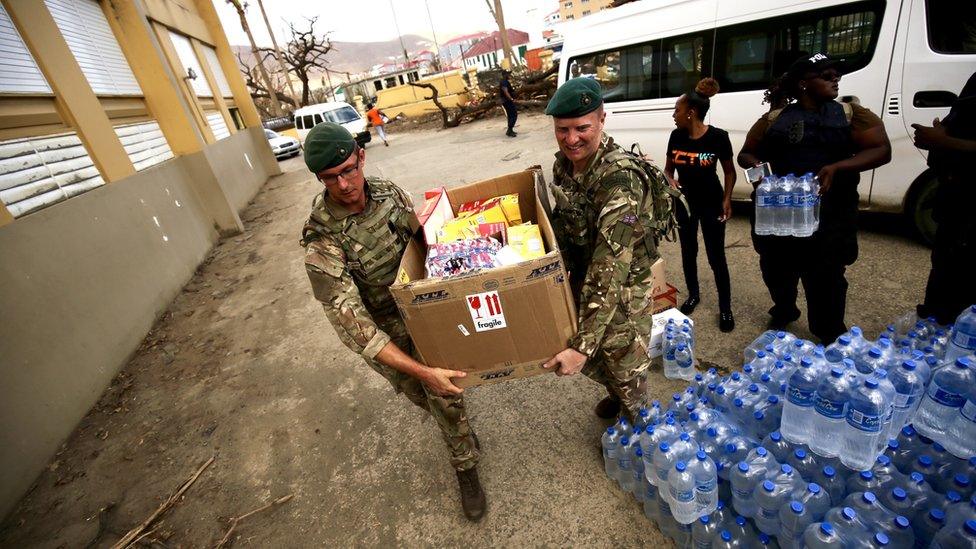
About 1,000 British troops are in the region providing aid in the wake of the hurricane
A number of prisoners are still on the run after more than 100 escaped when Hurricane Irma hit the British Virgin Islands.
Foreign Office minister Sir Alan Duncan said there was a "serious threat of the complete breakdown of law and order".
Police and troops have been sent to recapture the prisoners, the Foreign Office said, but some remain at large.
Foreign Secretary Boris Johnson has arrived in the Caribbean, amid criticism over the UK's response.
Speaking during the flight, Mr Johnson said his visit was a "very important statement" to show people the government was "here for UK nationals" in a time of need.
More than 500,000 British nationals have been in the path of Hurricane Irma, Sir Alan said, adding that five people are now known to have died in the British Virgin Islands and four in Anguilla.
Addressing the House of Commons, Sir Alan said there were 997 troops in the region and 47 police officers had been sent to the British Virgin Islands (BVI).
"We have maintained and kept law and order on the BVI which at one point could have dramatically threatened the already unfortunate plight of those that have been hit by the hurricane."
The hurricane-hit islands' needs are "unprecedented", says the international development secretary
He added that dealing with the security breach "was what ministers and the ministry of defence was for".
The Foreign Office said the BVI was a "priority" and it was working as quickly as possible to fully restore law and order.
British overseas territories, including Anguilla, Turks and Caicos and the British Virgin Islands, are self-governing but rely on the UK government for protection against natural disasters.
The UK relief fund of £32m has so far provided more than 40 tonnes of aid including 2,608 shelter kits and 2,304 solar lanterns.
RFA Mounts Bay, which was pre-positioned in the Caribbean ahead of hurricane season, started helping in Anguilla on 7 September.
Meanwhile, a second ship HMS Ocean has been deployed to provide aid and assist the reconstruction effort.
Some 250 military personnel will be sent to the Caribbean "in the next few days" bringing the total to around 1,250.
The foreign secretary said the UK's military presence on the islands was "really ratcheting up".
Boris Johnson says his visit is a "very important statement" to reassure the UK nationals
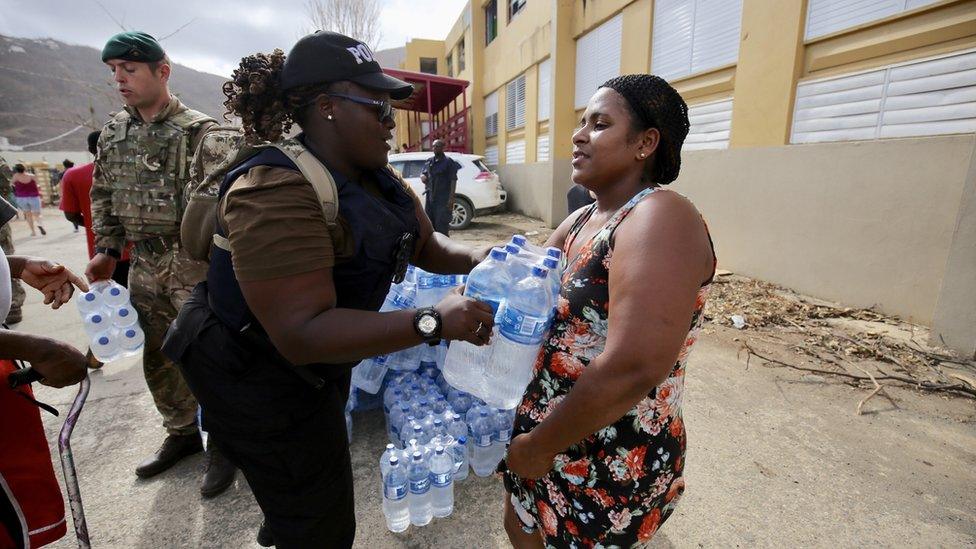
Some people in the British Virgin Islands are still lacking basic supplies
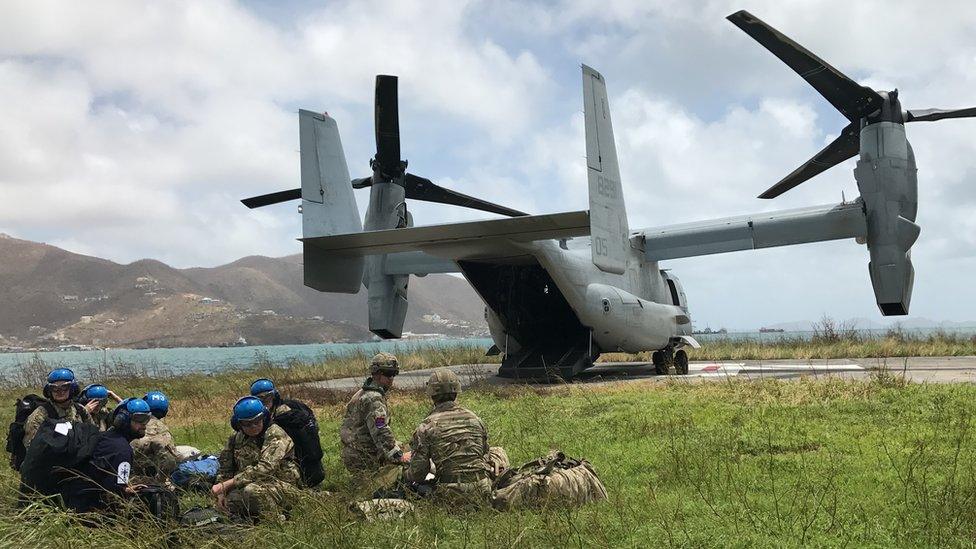
Another flight of supplies arrives in the BVI ready to be dispatched by soldiers
But shadow foreign secretary Emily Thornberry said the British government's response was "too little and too late" and talking about potential evacuation a week on from the disaster was "alarming".
The first flights for holidaymakers stranded by the hurricane in Florida, Cuba and the Caribbean will start to arrive back in the UK on Wednesday morning.
The international development secretary said the UK was in the region for the "long haul" and would help reconstruct the British territories.
Priti Patel told the BBC: "We are in no doubt this is an open-ended operation - the support will continue."
She said the needs were "unprecedented", but admitted getting kit and people into the region had been challenging.
What has happened in British territories?
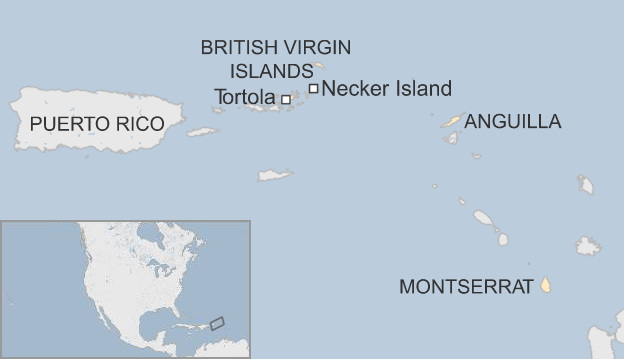
Anguilla: Hit by the full blast of the hurricane on 6 September, killing four.
British Virgin Islands: At least five people have died. Expected to require extensive humanitarian assistance.
Montserrat: "Swiped" by Irma but suffered less serious damage.
Turks and Caicos: Battered by the hurricane on 7 September, with roofs ripped off, streets flooded, utility poles snapped and a widespread black-out on the main island of Grand Turk.
- Published12 September 2017
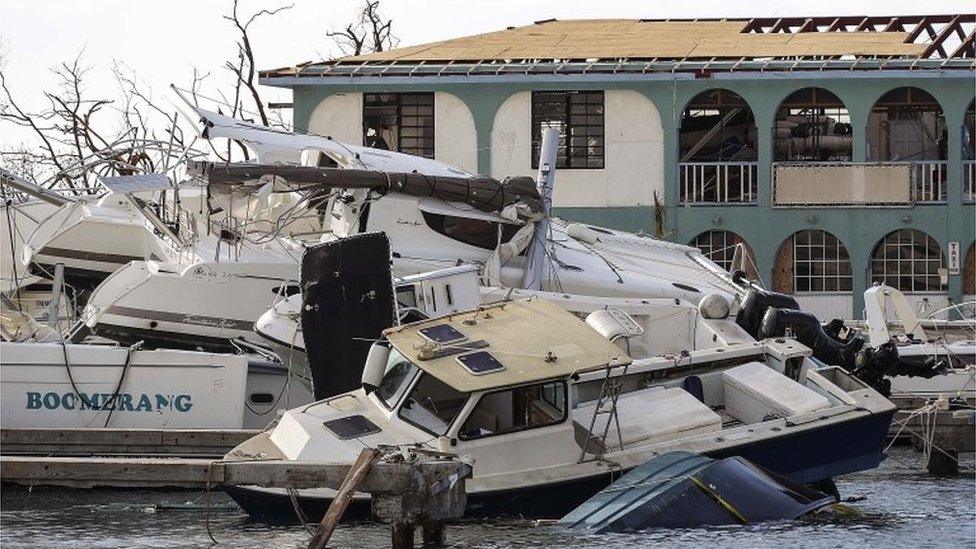
- Published8 September 2017
- Published12 September 2017
